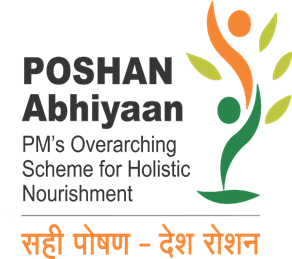
Poshan Pakhwada 2025 is a flagship initiative under the POSHAN Abhiyaan (Prime Minister’s Overarching Scheme for Holistic Nutrition), aimed at improving nutritional outcomes for children, pregnant women, lactating mothers, and adolescents in India. Held annually in the second half of March, this fortnight-long campaign highlights the importance of nutrition and promotes public participation to create a healthier nation.
As we approach Poshan Pakhwada 2025, it becomes even more crucial to focus on sustainable nutrition practices, community engagement, and awareness-building activities that ensure the well-being of every citizen, especially the vulnerable population groups.
What is Poshan Abhiyaan?
Launched in 2018 under the Ministry of Women and Child Development (MoWCD), Poshan Pakhwada is a 14-day national nutrition drive celebrated every year to spread awareness about health and nutrition across the country. It complements the larger mission of POSHAN Abhiyaan, which seeks to eradicate malnutrition and anaemia by leveraging technology, encouraging Jan Andolan (people’s movement), and ensuring convergence of multiple schemes.
Theme of Poshan Abhiyaan 2025
While the official theme for Poshan Pakhwada 2025 is yet to be formally announced by the Ministry, it is expected to focus on:
-
Mainstreaming millets (Shree Anna) in daily diets
-
Community-based management of malnutrition (CBMM)
-
Promotion of healthy lifestyle practices
-
Strengthening the role of Anganwadi Centres and frontline workers
The anticipated emphasis on millets aligns with the global shift toward sustainable, climate-resilient foods and supports the Indian government’s efforts to popularize traditional grains for better nutrition.
Key Objectives of Poshan Abhiyaan 2025
- Raise awareness about the importance of nutrition and balanced diets.
- Encourage behavior change through local engagement and educational campaigns.
- Promote nutrition-sensitive agriculture, including the cultivation and consumption of millets.
- Mobilize community support through participation from Panchayati Raj Institutions, schools, and NGOs.
- Strengthen Anganwadi infrastructure and empower frontline workers to spread nutritional awareness.
Activities Conducted During Poshan Abhiyaan
Various states and districts across India organize community-level events and initiatives to support the campaign. Common Poshan Pakhwada activities include:
- Nutrition awareness camps in rural and urban areas
- Poshan rallies and Poshan walks led by schoolchildren and ASHA workers
- Workshops on healthy cooking and meal planning
- Screening camps for anaemia and malnutrition
- Plantation drives promoting kitchen gardens and medicinal herbs
- Social media campaigns using hashtags like #PoshanPakhwada2025 and #JanAndolan4Nutrition
These activities aim to foster behavioral change and community ownership of the nutritional mission.
The Role of Stakeholders
From Anganwadi workers and school teachers to local self-government bodies and NGOs, the success of Poshan Pakhwada lies in multi-stakeholder participation. Frontline workers play a vital role in identifying malnourished children, educating mothers, and facilitating health checkups.
Corporate sectors and influencers are also encouraged to contribute through CSR initiatives and digital outreach.
POSHAN Tracker and Digital Initiatives
The POSHAN Tracker, a real-time monitoring tool, will continue to play a key role in 2025 by collecting and analyzing data on beneficiary coverage, nutrition indicators, and service delivery. It helps ensure transparency and efficiency in reaching the last mile.
Conclusion
Poshan Pakhwada 2025 is not just a campaign—it’s a call to action for every Indian citizen to contribute to the mission of a malnutrition-free India. Through collaborative efforts, community engagement, and informed choices, India is making steady progress towards improving health outcomes and fostering a culture of wellness.
As the momentum builds, let us embrace the spirit of Jan Andolan and work together to create a nourished, empowered, and resilient India. Source.
Want to read more about India click here.
Read more about child health here.